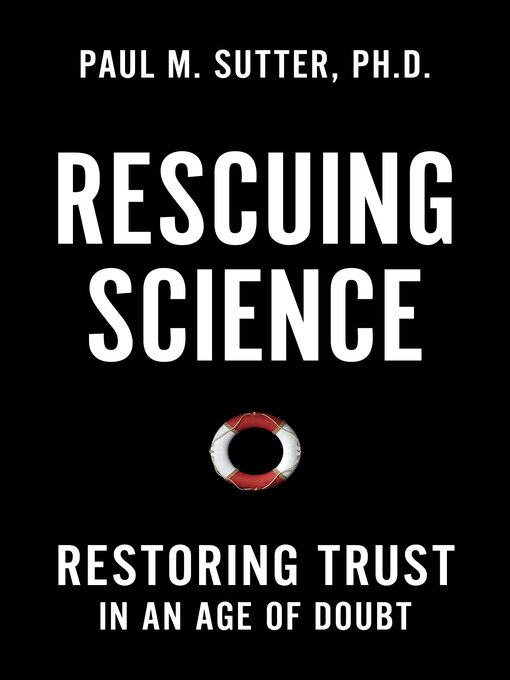For readers concerned about the roots of the public mistrust of science, get the book that Publishers Weekly says is "an ardent appraisal of what ails the scientific establishment."
Rescuing Science: Restoring Trust in an Age of Doubt is the product of Paul M. Sutter's long career in the scientific community, both inside and outside academia. Interweaving his own experiences as an astrophysicist with broader trends observed by himself and others, Sutter roots the current distrust of science within the academic scientific community itself. Throughout this book, Sutter reveals a community that has come to disregard the broader public, is obsessed with winning grants, ignores political landmines, limits the entrance of minorities, and permits fraud in the pursuit of notoriety.
Sutter tackles these and other issues through the lens of a vicious cycle, where public mistrust and misunderstanding of science leads to fewer funding opportunities, which leads to more competition within science, which leads to a rise in fraud, which circles back to greater mistrust. Each chapter addresses one of the vices the academic scientific community has allowed to perpetuate, the sum of which he likens to an illness of the soul of science. He also explores the historical context of each issue in order to identify its root causes. Sutter concludes each chapter by providing actionable solutions for both the nonscientific and scientific communities, as well as what he regards as an ideal and healthy scientific approach, which will lead to greater public trust.

